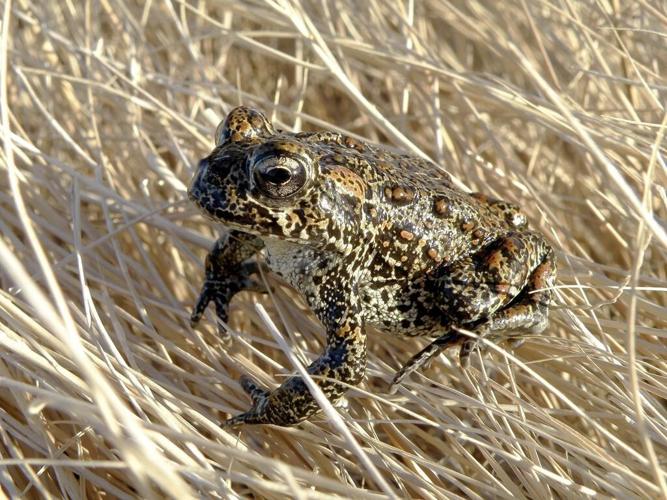RENO, Nev. (AP) — In an unusual move that could pit two Biden administration agencies against each other, the developer of a planned Nevada geothermal power plant says it intends to sue U.S wildlife officials to overturn the endangered species listing of a toad in adjacent wetlands.
Ormat Technologies said in a 60-day notice of its intent to sue the Interior Department's Fish and Wildlife Service that the in December was illegal.
“The toad does not meet the definitional standard for a threatened — let alone endangered — species, and the service failed to base its decision on the best scientific and commercial data available," Reno-based Ormat said.
It’s the latest legal maneuver in a series of conflicts underscoring challenges President Joe Biden faces in vowing to protect fish and wildlife while also pushing the development of so-called green energy projects on U.S. lands to help combat climate change.
A court battle over the toad’s listing would put the administration in the precarious position of using its Justice Department lawyers to defend the wildlife service’s decision to list the toad, while continuing to defend the Bureau of Land Management’s approval of the geothermal project in a lawsuit brought by conservationists and a tribe.
The Interior Department, which oversees the Fish and Wildlife Service and the BLM, had no comment, spokesman Tyler Cherry said.
The project planned about 100 miles (161 kilometer) east of Reno is among three in Nevada at the forefront of Biden’s push to speed the transition from greenhouse-emitting fossil fuels to cleaner energy sources.
The other two, which also face opposition from environmentalists and/or Native American tribes, are lithium mines intended to produce a key element in electric vehicle batteries.
The Center for Biological Diversity and the Fallon Paiute-Shoshone Tribe first sued the BLM in federal court in Reno in January 2022 seeking to block the construction of the geothermal plant — a case that has already made one trip to the 9th U.S. Circuit Court of Appeals.
Ormat is a formal intervenor in that case, with its own lawyers arguing alongside the Justice Department lawyers representing the BLM.
The opponents say pumping hot water from beneath the earth’s surface to generate carbon-free power would adversely affect the levels and temperatures of surface water critical to the survival of the toad. The hot springs that feed the wetlands are sacred to the tribe.
The service concluded in its listing decision that the geothermal project posed the single biggest threat to the toad and that “threatened species status is not appropriate because the threat of extinction is imminent.”
The decision came after the agency temporarily listed the speckled, quarter-sized amphibian on an emergency basis in April 2022, which marked only the second time in 20 years it had taken such emergency action.
The notice gives the wildlife service 60 days to “come into compliance” with the or face a lawsuit seeking to rescind the listing.
“The species is not currently in danger of extinction,” Jessica Woelfel, Ormat's general counsel, wrote Wednesday.
The listing was “based on an outdated project design, inflated possible harms and disregard for Ormat’s mitigation plan,” Woelfel wrote. She said it doesn't reflect a scaled-back plan to initially build a much smaller 12 megawatt power plant, instead of two capable to producing 60 megawatts.
Patrick Donnelly, the Center for Biological Diversity's Great Basin director, said the organization is confident the listing of the toad as an endangered species will hold up in court.
"There’s widespread consensus among government and independent scientists that this geothermal project puts the Dixie Valley toad at risk of extinction," Donnelly said. “The only ones who disagree are those on Ormat’s payroll or at the Bureau of Land Management.”
Last summer, the San Francisco-based appellate court refused to grant a temporary injunction blocking construction of the power plant the bureau approved in December 2021.
But just hours after that ruling, Ormat announced that it had agreed to temporarily suspend all work on the project until this year. Then, in late October, the company asked for while it developed a smaller plan in anticipation of the endangered species listing.
Ormat said in its notice of intent to sue that the wildlife service knew the company was in the process of scaling back the size of the initial project when the agency issued the listing decision.
“As a result of Ormat’s proposal, BLM rescinded the 60 MW project approval and issued a new one for 12 MW ... just days after the final listing rule,” the letter said.
“Any assessment of risk associated with a project five times larger than the approved project capacity is completely irrelevant," it said. "A 60 MW project cannot currently threaten the (toad) because it literally does not exist.”










































